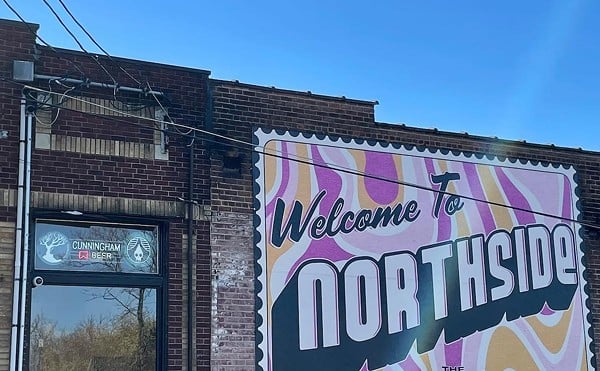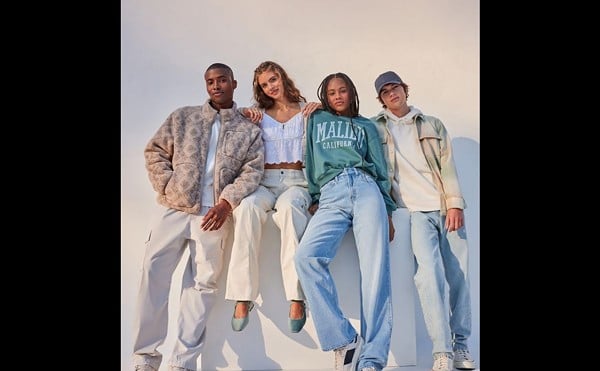|
Mustard Plug with Forest Fire, Hazle Weatherfield and The Frankl Project
Thursday · Top Cat's
It's been nearly 15 years since Colin Clive and Dave Kirchgessner met at a 1991 show by Special Beat (a reworked version of second-wave Ska greats, The English Beat) in Ann Arbor, Mich., and came up with the idea to form the only Ska band in Grand Rapids. When Mustard Plug debuted publicly a scant six months later, they were asked to leave the premises after just three songs. A lesser band would have been crushed but Mustard Plug took the rejection as constructive criticism and spent the next three years relentlessly touring the region in an effort to hone their skills and attract a fan base. They did both in high style.
The band's recorded debut, Skapocalypse Now!, came just a year after they formed and mirrored the rawness of their first live appearance. But 1993's Big Daddy Multitude reflected the Plug's hard work and steady improvement. Throughout the '90s, the band's lineup changes were fluid but each new iteration proved a little better than the last. The Plug famously attracted the attention of Hopeless Records when they opened for The Descendents in Los Angeles in the fall of '96 and ran into the label's owners in the club's beer line, securing a record deal on the spot. Their industry reputation was sealed in 1997 when outsider musician (or hopeless schizophrenic) Wesley Willis immortalized the band in his aptly titled song, "Mustard Plug," followed not long after by their third album, Evildoers Beware.
The band made waves in '98 with their Ska version of The Verve Pipe's "The Freshman" for a local compilation and gained tons of experience and new fans on the "Ska Against Racism Tour" with The Toasters and Less Than Jake, as well as their first circuits of Japan and Europe.
1999 found the Plug releasing their fourth album, Pray for Mojo, filming a 3-D video for "Everything Girl" and performing their cover of "The Freshman" with members of The Verve Pipe at the Roxy. In the new millennium, Mustard Plug continued to endure numerous lineup changes, celebrated their 10th anniversary, and toured Brazil for the first time. In 2002, they received their first invitation to the Detroit stop of the Warped Tour where they were pulled after (you guessed it) three songs; they also released their acclaimed fifth album, Yellow #5.
Over the past two years, Mustard Plug has appeared on two "Ska is Dead" tours, released their Masterpieces: 1991-2002 greatest hits album and junked their beloved van for $100. See them, love them and for God's sake, let them play more than three songs. (Brian Baker)
Greenwheel with Bluf, Starkillers and Relapse
Friday · The Mad Frog
Greenwheel's cautionary tale of fleeting success, label indifference and iron-willed tenacity is an inspiration to any band that aspires to the next level. Forming fresh out of high school eight years ago in their hometown of St. Charles, Mo., the quartet — vocalist Ryan Jordan, guitarist Andrew Dwiggins, bassist Brandon Armstrong, drummer Marc Wanninger — spent a couple of years gigging the region relentlessly, assembling a fan base and selling their self-produced CD. A chance meeting with producer Malcolm Springer put them on the music industry fast track; within three months, Greenwheel had recorded a four-song demo in Nashville, showcased in New York and signed to Island Records.
The band's 2002 major label debut, Soma Holiday, looked like a sure winner, as the album made No. 14 on Billboard's Heatseekers chart, spawned some radio action with "Breathe" and "Shelter," and garnered the band a plum spot on the Spider Man soundtrack. Two years later, Melissa Etheridge chose to cover "Breathe" on her 2004 comeback record, Lucky. The song wound up being the first single from the album and was a huge hit, earning Etheridge a Grammy nomination for the song. It should have been the start of Greenwheel's triumphant climb, but instead the band was reined in by shortsighted label execs and wound up on hiatus and without a label.
After much soul-searching, Greenwheel reconvened with new drummer Derek Bailey and resolved to take a different path, starting their own label, Through the Pink, to release their new five-song EP, Bridges for Burning. With an unpretentious Midwestern version of the shimmering power of U2 and the anthemic elegance of Coldplay, Greenwheel is ready to take to the road once again to pursue a realistic Rock dream after teetering on the brink of major stardom. (BB)
Kiss Me Deadly with The Fairmount Girls
Tuesday · Southgate House (Parlour)
"Dance Rock" (and Emo) will likely be remembered in five years or so like the third-wave Ska revival — a "flash in the pan," despite the fact that all of those genres had been thriving beneath the glow of the trendy spotlight before radio took note and despite their continuing existence well after the wider attention fades. And just because a particular sound is "of the moment," doesn't mean it's devoid of valiant artists doing interesting and creative things. So for every Indie band who adds a disco beat and Gang of Four riffage to get on the good side of the cool kids (or label execs), there are several others who are creating their own little sonic worlds that just happen to have attributes of the "now sound."
Montreal's Kiss Me Deadly began life as an "early Dischord-influenced Emo/Math Rock" band (according to their press propaganda), but on their latest effort, Misty Medley, the band stretches out artistically, honing their broad guitar soundscaping, melodic prowess and emotional energy and adding, yes, dance beats and some New Wave quirkery. The results are compelling, as the band's progressive, follow-any-whim arrangements, ambient but pointed atmospherics and vocal trade-offs are more in line with the mindset of Broken Social Scene than the more direct Neo-New Wave standard-bearers.
While tracks like "Dance 1," "Dance 2" and ... well, all of the songs with "Dance" in the title have taut dance-floor rhythms, the band augments them with vivacious, ringing guitars and singer Emily Elizabeth's awesomely schizoid vocals, which go from girly breathiness to startling shrieks, often within the span of a single stanza. Guitarist/programmer Adam Poulin steps up to the mic on songs like "Pop" and "Let's," which eschew the Disco bumping for something more akin to early U2 or Echo and the Bunnymen. If the founders of 4AD Records would've stumbled into Studio 54 while building the label's ethereal personality, their best band would probably have sounded something like Kiss Me Deadly. (Mike Breen)





